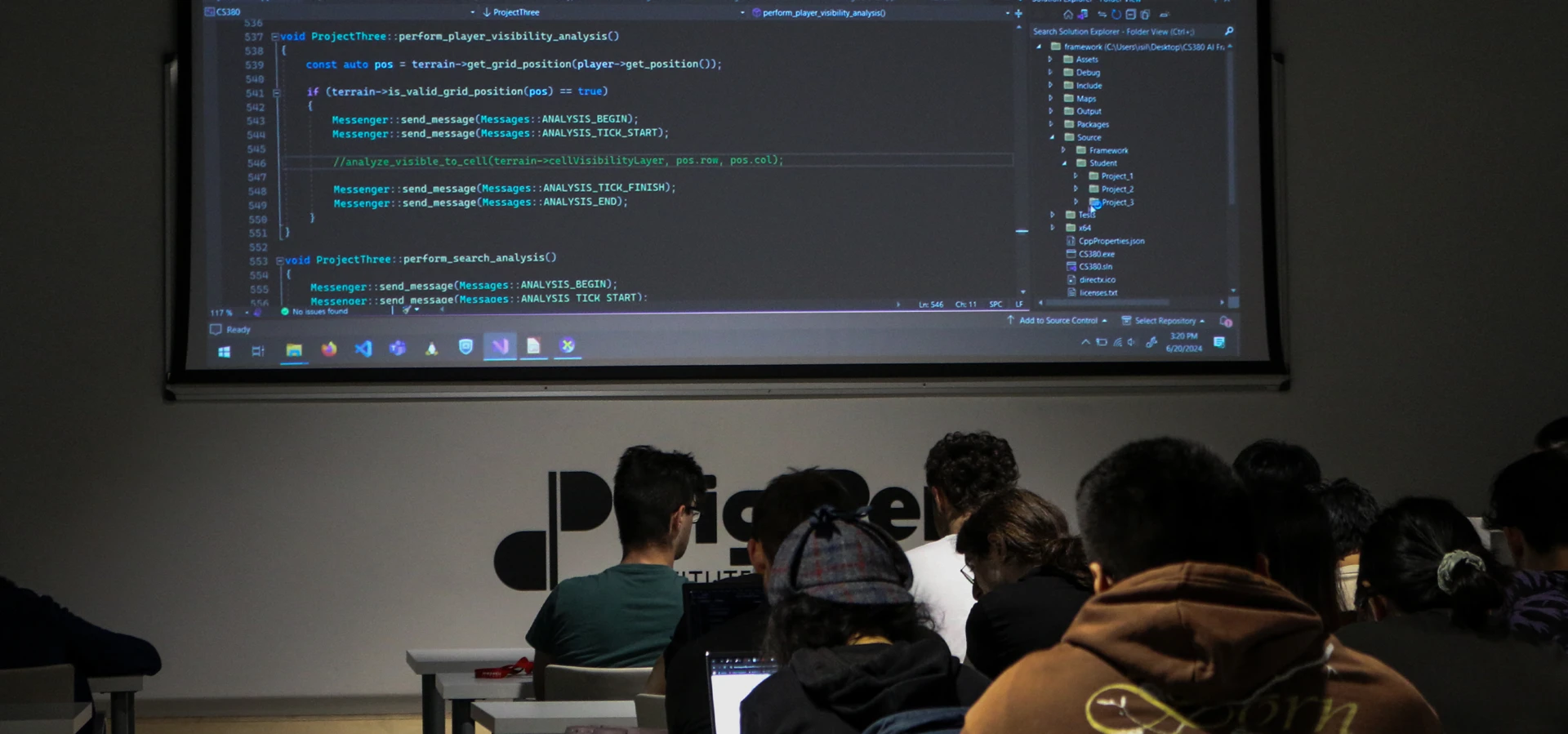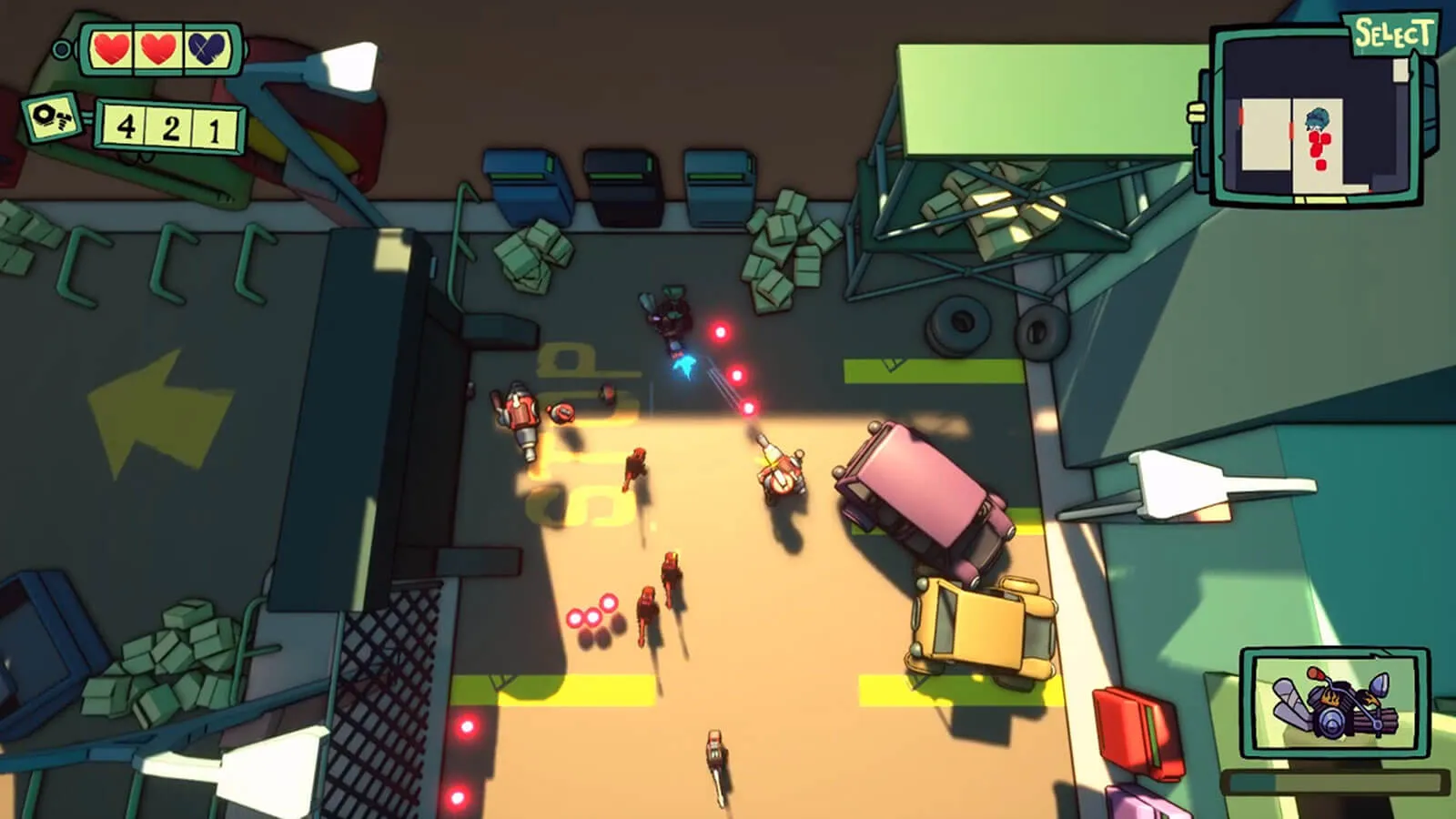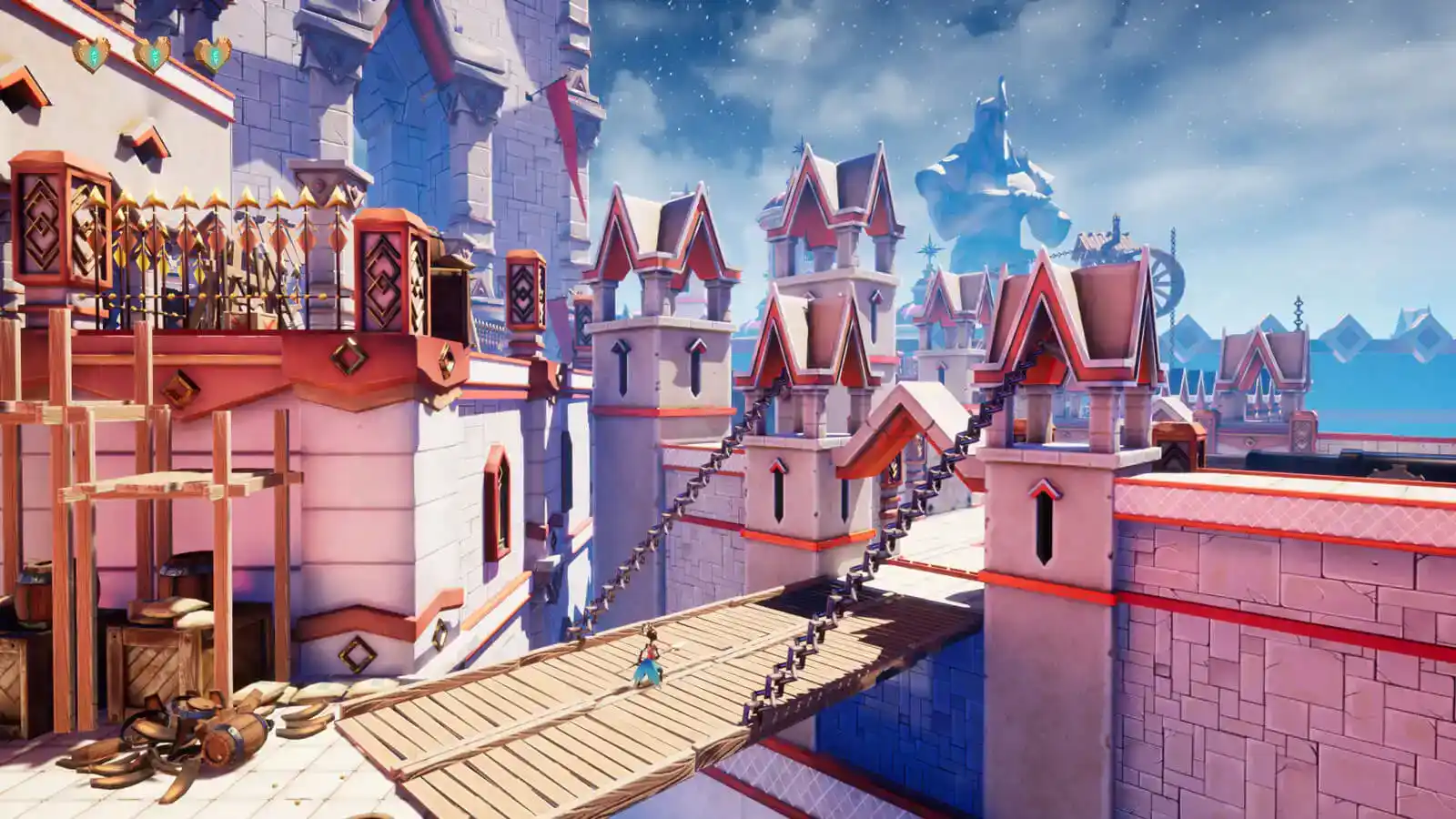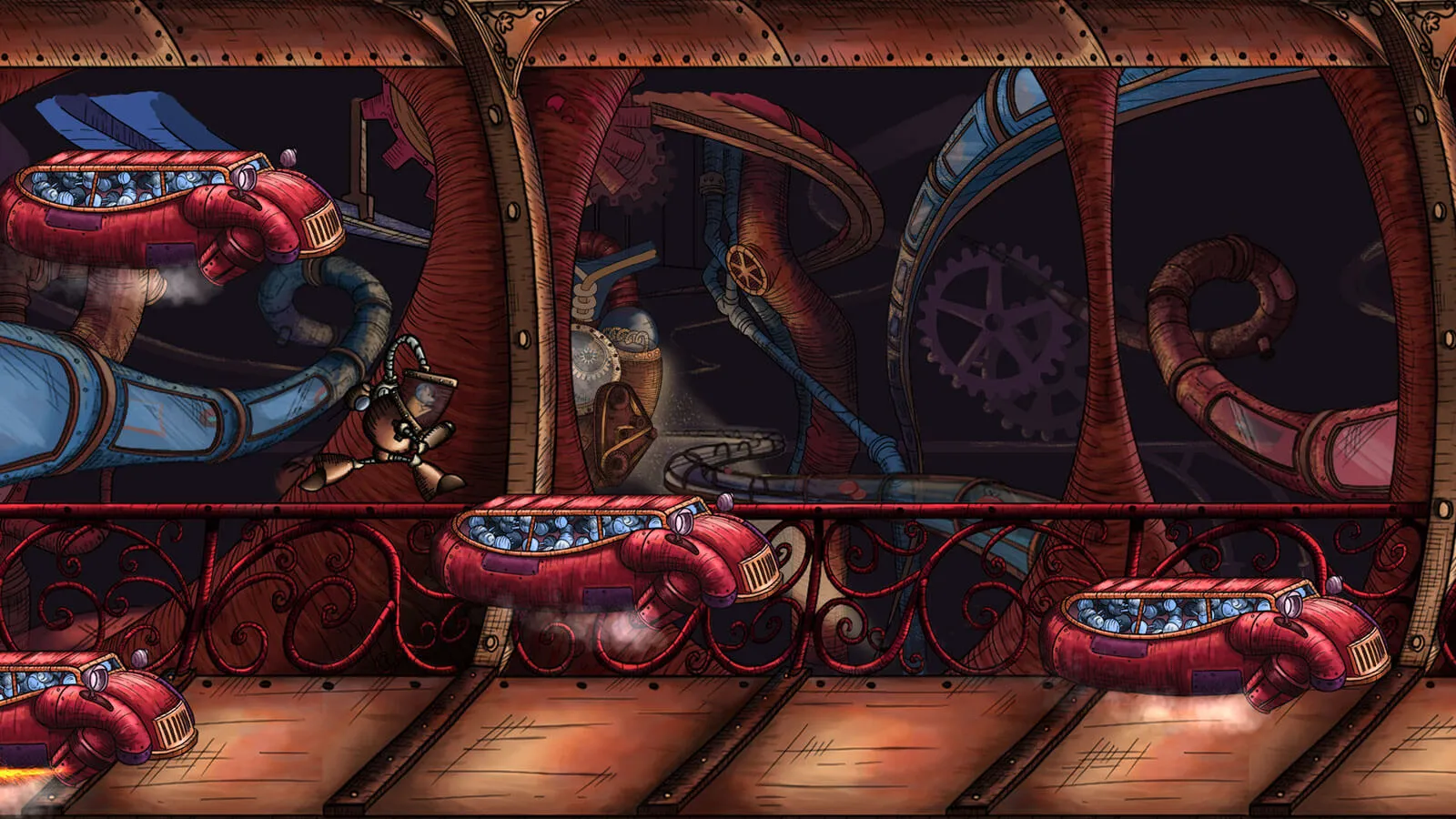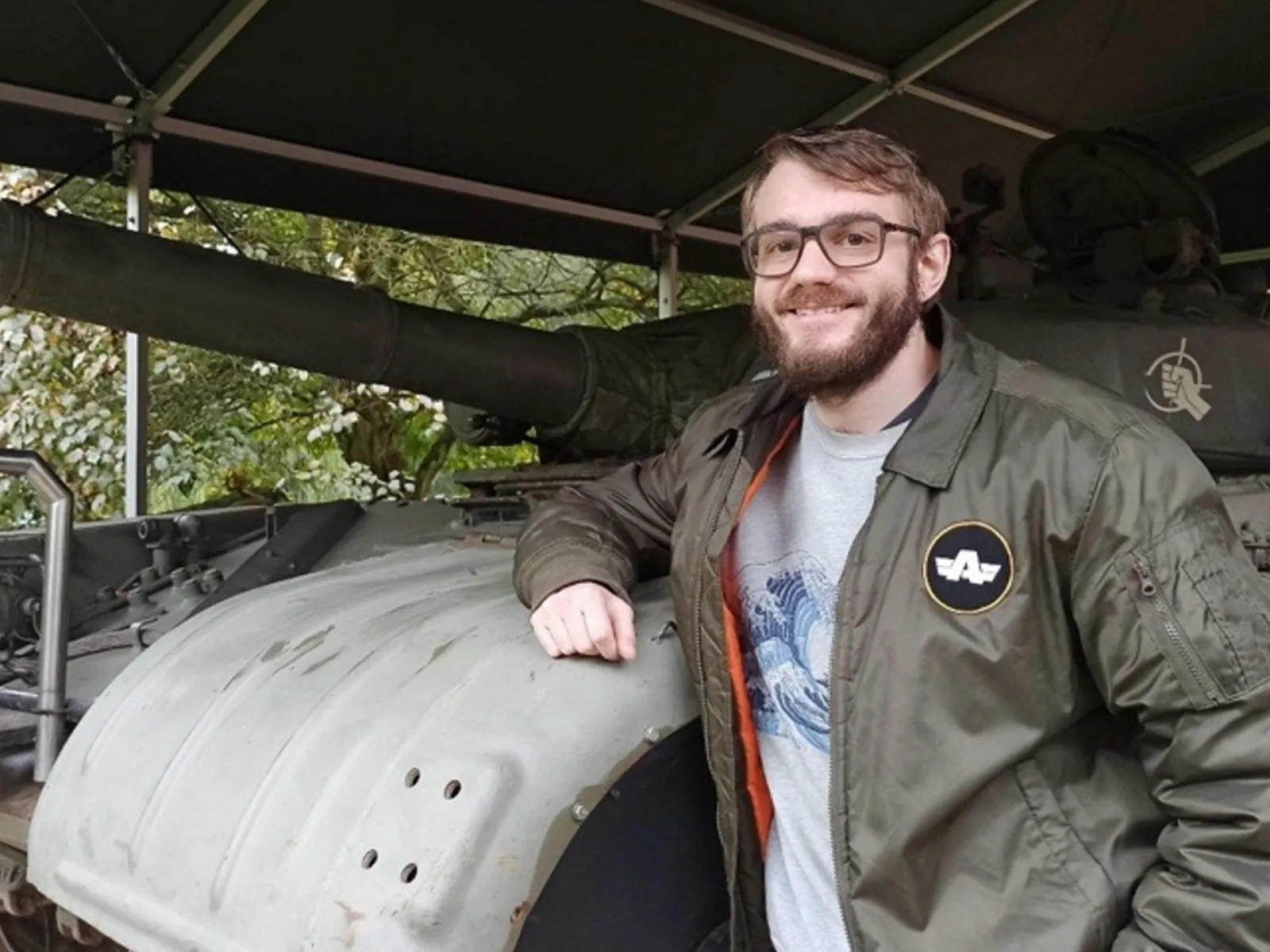Video games aren’t just entertainment – they’ve evolved into complex software systems that push the limits of what computers can accomplish. The Bachelor of Science in Computer Science in Real-Time Interactive Simulation prepares you to build and optimize the technology at the core of these systems – from graphical algorithms to level editors to physics engines.
Jump to Section
Through an in-depth study of mathematics, physics, and computer science – combined with real-world projects where you design and program your own fully playable games from start to finish – this program transforms you into an efficient software developer, able to understand, communicate, and solve problems at every stage of the development process.
Developers from all over the world have made their marks on the video game industry after earning a BS in Computer Science in Real-Time Interactive Simulation degree from DigiPen. Will you join them?
Who Should Pursue This Degree?
If you want to develop the software technology that makes video games and interactive worlds possible, the BS in Computer Science in Real-Time Interactive Simulation program can help get you there. Students have landed positions working on AAA video games right out of DigiPen as skilled programmers, producers, and more. While the program is specifically focused on the computer science skills and graphics technologies used to create cutting-edge 3D games and simulations, as a graduate of the program you will have the skills and experience necessary to develop all manner of software applications.
As a student in this program, you will:
Academic Roadmap
As a student in this program, you will split your time between courses in mathematics, physics, and computer science and team-based project classes that will allow you to collaborate with students from other disciplines. Each course will build on your foundational knowledge, while the project coursework will give you the opportunity to apply your education in a setting that emulates the professional studio environment.
Admissions Requirements
In order to apply for the BS in Computer Science in Real-Time Interactive Simulation program, you should have a strong foundation in math, science, and problem-solving. You’ll need to have completed precalculus (or its equivalent) prior to attending DigiPen Europe-Bilbao. Additional coursework in computer science and physics is recommended but not required.
Topics Covered
Students in the BS in Computer Science in Real-Time Interactive Simulation program will learn how to:
